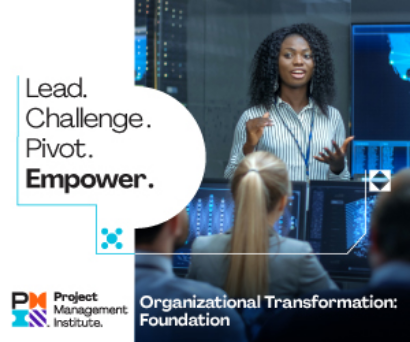Presentation Recap: The 3 Most Challenging Moments That Can Make or Break Any Project
By Donna Gregorio Oct 15 , 2021
During my presentation on “The 3 Most Challenging Moments That Can Make or Break Any Project” at the PMI Virtual Experience Series 2021 on 6-7 October, the audience posed several questions in the chat that are worthy of a blog post response. Here are a few of those questions and my answers, based on what was discussed in my presentation.
Question 1: Do you think the key to PM irreplaceable vs. irrelevant is the level of influence and trust built with the stakeholders?
The key to a PM being irreplaceable is to ensure you are actively driving the project’s success and ensuring a positive mission outcome. The world of IT project management can indeed be shaky ground if the project managers are not critical to project delivery. You need to have confidence in your role, knowing the key processes and how you are adding value. Be a critical team player by getting deep enough into the project to understand the outcomes such that you can quantify them using metrics for program success measures. There are other ways to be a critical team member, including managing cross-coordination issues across multiple efforts, identifying and driving data integration issues, and communicating cross-functional impacts with stakeholders. Be less administrative and more attentive to project goals and deliverables to make yourself irreplaceable.
Question 2: Very nice presentation, Donna. You’ve touched on scope creep. How have you managed to balance avoiding scope creep with the requirements of incremental/iterative projects?
Scope creep can be the biggest threat to your project regarding lengthening the schedule, increasing cost, and lowering your chances of success. It happens when features are added that were not in the original plan and unaccounted for in cost and schedule. When an incremental/iterative project begins to learn more and adds new features, negotiation with stakeholders is key to ensure comparable original requirements are removed. In other words, only add new features if you can remove some items to keep your work balanced. Capacity planning and understanding how much work your team can accomplish is another significant factor to ensuring proper estimating. Remember that negotiating is key to staying within budget/schedule as the scope is shifting.
Question 3: Do you have any advice, if you were not responsible for project initiation and experience massive problems now with the project? A risk management is already implemented, but all communication with stakeholders is very difficult.
One approach would be to develop a “get well” plan for your troubled project and take action to set things right. Start out by ensuring you have As Is documentation to review the schedule, work breakdown structure, recent status reports and user acceptance testing results. Identify what was the expected plan and where are you now. Provide recommendations, including adjusting any diagramming, changing workflows, modifying execution plans or Kanban boards, conduct a change-readiness review. The team can decide whether there is time in the schedule to proceed with these recommendations. Finally, the task force can develop an organizational change management plan, collect metrics for proof of success, conduct lessons learned, and finalize any wrap-up tasks, such as budget finalization.

